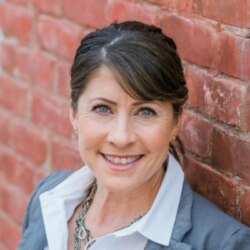A Glimpse Into A Choice School In The Making
"To do this, one must be allowed to work outside of the top-down uniformity of traditional public schools and rather be able to design and build from the community up."
Frustrated working in the traditional system with standards that allow students to stagnate while no one, no teacher nor student, faces corrective consequences for lack of student growth, award winning special education teacher, Kasey Koehler, has abandoned her job as an administrator in Miles City so she can create a Choice School focused on students with diagnosed disabilities and differential learning needs.
Koehler, driven by her community’s strong interest in educational alternatives, considered opening a school this past fall, exploring options like an independent school, learning center or homeschooling-hybrid model. Despite parental encouragement to move fast, she and her board recognized the pitfalls of hastily opening a school. They also saw promise in the new Community Choice Schools Act (CCSA) as an ideal match for their envisioned school focused on delivering a coherent education for students with special needs while simultaneously offering a wide-ranging curriculum to any interested student. Rather than going straight to market, Koehler and her board will now begin the meticulous preparations for the eventual charter application process using the CCSA.
Koehler, having over twenty years of teaching experience across K-12 schools, possesses expertise in general education, special education, and administration. Armed with two master’s degrees in Special Education and Education Leadership, her vision for a Choice School includes a truly flexible, learner-centered K-8 curriculum, modeled on an Individualized Education Program (IEP) for every student, something only special education students qualify for under the traditional structure.
Undeterred by the current lawsuit against the CCSA, Koehler and her fellow founders are using this time to do the substantial pre-work necessary for creating a new public school. Koehler recognizes that she needs to expand her board, develop a formal business plan, identify funders and grants, synthesize a culmination of comprehensive curriculum, ascertain the feasibility of integrating virtual components, identify a yearly assessment to measure student growth, hire teachers, and most importantly, enroll students.
When asked about what types of flexibilities she was looking for, Koehler mentioned quite a few. Though she plans on hiring teachers with specialized licensing, Koehler noted that it shouldn’t matter in which state a special educator earned their degree. Additionally, she described employing co-teaching teams to combine the forces of special educators with general education teachers to work with high-achieving students, students with diagnosed disabilities, students who have experienced trauma, setbacks or who live in poverty without constraints of age-bands, learning level, coercive start and stop times, or maximum class sizes. Koehler described that she is mainly interested in attracting teachers “with a spark,” those who instinctually innovate and flexibly adjust to their students’ needs. Koehler also plans to bring IEP standards, including frequent assessment, annual and long-term goals, benchmarks, and transition services to all students so that at any given moment, parents, students, and teachers know each student’s various proficiency levels.
With an eye on strengthening the board, Koehler aims to add mission-aligned individuals from across the state, leveraging another flexibility feature of the CCSA. She believes that building from within Montana is better than “relying on outside CMOs [Charter Management Organizations] to come in and offer something impersonal.” With all board members working towards the same vision alongside an aligned and attentive head of school, the Choice School will be able to reliably offer, year after year, what parents expect: student growth and flourishing.
Understanding the public funding will be minimal as proposed in the CCSA, Koehler is conscious of creating a fiscally responsible new public school. To do this, one must be allowed to work outside of the top-down uniformity of traditional public schools and rather be able to design and build from the community up. If the law is not upheld in the courts, her creation can be offered as an affordable independent school, and students with diagnosed disabilities and IEPs can use the ESA to cover tuition.
